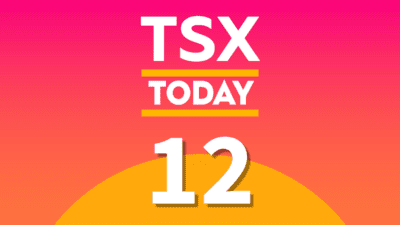I’m a big advocate of passive investing using exchange-trade funds (ETFs), especially those that track broad market stock indexes. There is ample evidence out there that shows holding a low-cost, globally diversified stock portfolio will beat the majority of stock pickers and day traders.
The lesson here is to keep your investing simple. My previous go-to advice was to purchase a global-ex Canada ETF and pair it with a Canadian equity ETF at ratios of anywhere from 90/10 to 70/30. That cuts our required holdings down to just two ETFs, which is quite simple.
The one-ticket solution
However, fund providers like Vanguard have come out with some excellent “asset allocation” ETFs that make the job even simpler. By buying and holding just one ETF, you’ll have a stock portfolio matches the market with zero effort.
Vanguard All-Equity ETF Portfolio (TSX:VEQT) is possibly one of the best 100% equity ETFs available to Canadian investors. For a low management expense ratio (MER) of 0.24%, you get instant exposure to over 13,526 stocks covering the entire world’s investable market.
What’s under the hood?
With VEQT, you never have to try and time which stocks will do well, which market cap will gain more, which sector will outperform, or which country will pull ahead. VEQT is incredibly diversified in multiple aspects:
- VEQT holds roughly 80% large-cap, 12% medium-cap, and 8% small-cap stocks.
- VEQT allocates its holdings 43% U.S., 30% Canadian, 20% developed, and 7% emerging markets.
- VEQT has its largest holdings in technology and financials each at 19%, with the rest split among industrials, consumer discretionary, healthcare, energy, materials, consumer staples, utilities, telecoms, and real estate.
The top 10 holdings of VEQT include many familiar names in both the U.S. and Canadian stock markets, including Apple, Microsoft, Shopify, Royal Bank, Toronto-Dominion bank, Amazon, Bank of Nova Scotia, Brookfield Asset Management, Enbridge, and Canadian National Railway.
Currently, VEQT also pays an annual dividend yield of 1.40% and has assets under management of $1.78 billion.
Why choose VEQT?
VEQT is attractive versus a traditional two-ETF portfolio due to its built-in annual rebalancing. This is when the fund managers sell stocks that outperformed, and buy ones that underperformed to maintain the targeted asset allocation. Rebalancing helps to buy low and sell high and ensures that no single stock, sector, or country dominates the ETF.
The 30% Canadian home bias might seem like a lot, given that Canada only comprises 3% of the world’s stock market. However, research shows that an overweight to Canadian stocks has several advantages for Canadian investors, including lower foreign withholding tax, volatility, and currency risk.
The Foolish takeaway
Investing should be boring and hands off. The less you tinker with and try to “optimize” your portfolio, the better it will do. When it comes to simplicity, VEQT is as good as it gets.
For a MER less than a quarter of what typical mutual funds charge, you get instant diversification via tens of thousands of global stocks, with no rebalancing required. Buying VEQT consistently and reinvesting the dividends will allow you to match the market in the long run and beat most retail investors!







